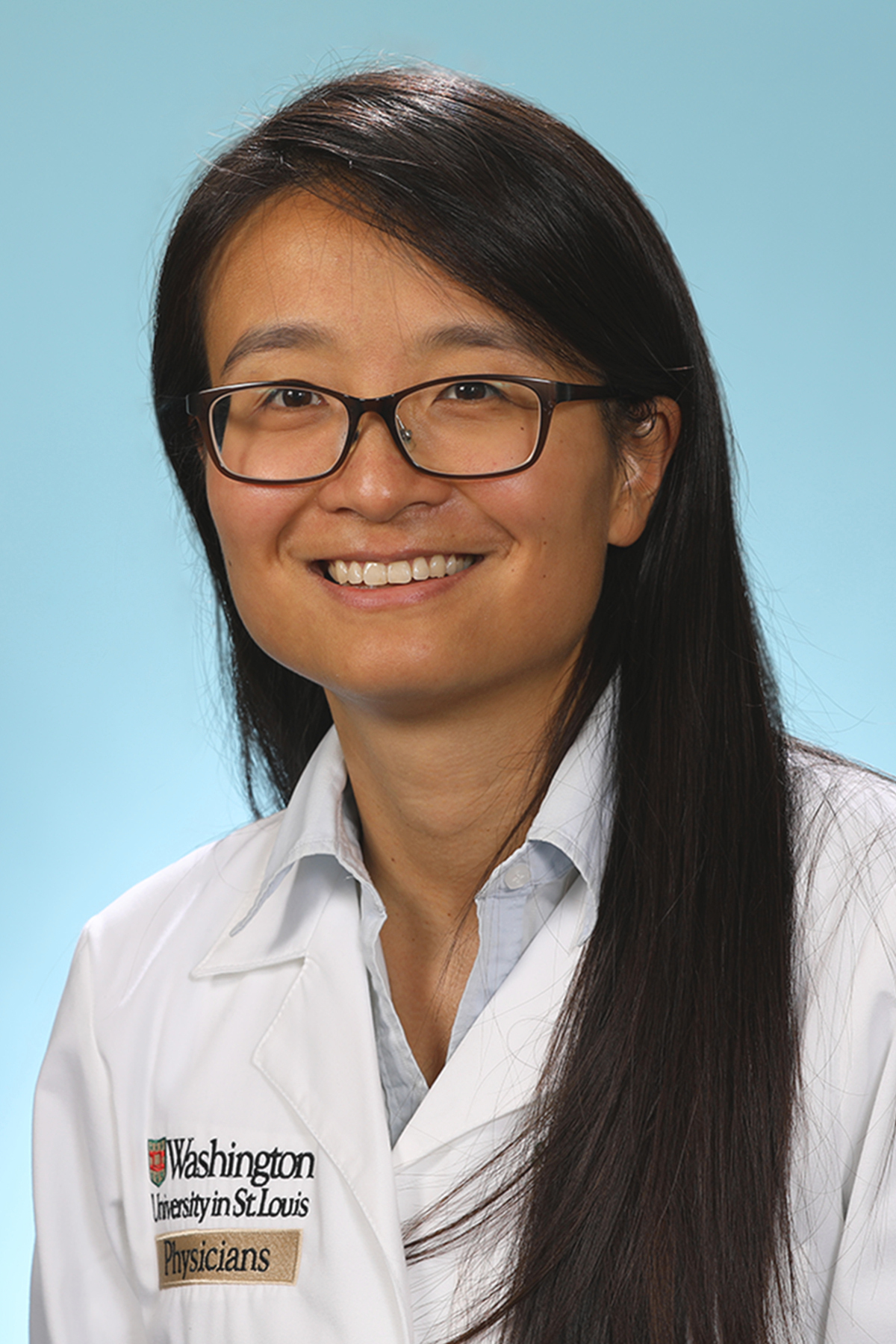Discovering Potential in Data to Advance Clinical Care
An Interview with Abstract Presenter and 2022 IARS Mentored Research Award Recipient – Dr. Sunny Lou
 Sunny Lou, MD, PhD
Sunny Lou, MD, PhD
Instructor in Anesthesiology
Washington University in St. Louis
St. Louis, MO
Abstract Title:
Comparison of EHR-derived Anesthesiology Workload and Reimbursement: A Retrospective Observational Study
Category: Economics, Education and Policy
Poster #: 38
Poster Presentation:
Poster Session H, Saturday, April 15, 3:00 pm – 4:00 pm MT, Centennial A-D, The Hyatt Regency Denver at Colorado Convention Center
Sunny Lou, MD, PhD, is resolutely focused on discovering the potential in the multitude of data collected in the specialty of anesthesia and how that data might be used to change behaviors and ultimately improve clinical care. This tireless dedication earned her a 2022 IARS Mentored Research Award (IMRA) for her research project, Intelligent Clinical Decision Support for Perioperative Blood Management, and an opportunity to present at the IARS 2023 Annual Meeting on an additional investigation of hers, Comparison of EHR-derived Anesthesiology Workload and Reimbursement: A Retrospective Observational Study, where she serves as the primary investigator. An instructor in anesthesiology at Washington University in St. Louis, Dr. Lou is hoping her investigation will bring to light a better understanding of the relationship between clinical workload and reimbursement in anesthesiology. Below, she shares her vision for this research, how she anticipates the IMRA award and her presentation at the IARS 2023 Annual Meeting will impact this field of study, her career as a junior investigator, and her hopes for the future.
1. For this research, you are…
Principal Investigator
2. What drew you to the anesthesiology specialty?
I really like physiology. I like the instant gratification of doing a procedure and seeing immediate effects of that intervention. I like how much data there are in it. This is a specialty that collects a lot of physiological data. I’m interested in getting involved and leveraging that data for support of patients.
3. What drew you to this area of research?
I’m interested in studying how clinicians interact with the electronic health record, and I’ve been using audit log data as part of that research. Because so much of our work now passes through the EHR or needs to be documented in the EHR, audit logs provide a relatively comprehensive look into clinical work. We were interested in developing methods to measure clinical workload and its relationship with reimbursement.
4. What are the goals you most want to accomplish in your work?
I hope to understand the relationship between clinical workload and reimbursement in anesthesiology.
5. What is the potential impact of your research on the field of anesthesia?
This research suggests that anesthesiologists are relatively undercompensated for patient complexity and relatively overcompensated for procedural complexity in the current US reimbursement system. Given that tertiary care academic medical centers typically care for sicker patients, these centers are disproportionately impacted by this discrepancy.
6. What are the benefits of presenting your research during poster sessions at the IARS Annual Meeting?
I’m looking forward to meeting other researchers and getting feedback on this project and other ongoing projects.
7. How will the 2022 IARS Mentored Research Award affect your research and professional trajectory?
It is definitely a big honor and will make a big difference for my career. The award will provide me with protected research time and develop my career as a junior researcher. It also gives me resources to hire people to help me with the informatics and analyzing the data. It also gives me the mentorship resources I need to develop skills in new areas.
Being able to have protected research time as a junior investigator is really important and the fact that this award guarantees that time is really helpful.
8. How is your current research project / projects influenced by your 2022 IARS Mentored Research Award research project?
This project and my 2022 IMRA both relate to my interests in understanding how electronic health records can be used to improve clinical care.
9. Is there anyone else you wish to acknowledge as part of this research team?
My mentors have been helpful. My mentor Thomas Kannampallil has been very helpful to my success as well as my second mentor Michael Avidan. I really appreciate their support.
10. What might someone be surprised to know about you?
My name in Chinese actually means entropy. I think that was a mistake, but it’s an interesting beginning to have such a chemistry-focused name.
11. What is your vision for the future of anesthesia research?
In general, using big data and data science has a lot of potential. We have a lot of potential to use the clinical data we collect to improve clinical care. How to make good decisions and unbiased decisions is still a major challenge. The potential is there, but there is a lot of work to be done still.
“This research suggests that anesthesiologists are relatively undercompensated for patient complexity and relatively overcompensated for procedural complexity in the current US reimbursement system. Given that tertiary care academic medical centers typically care for sicker patients, these centers are disproportionately impacted by this discrepancy.”
– Sunny Lou, MD, PhD, Abstract Presenter and 2022 IARS Mentored Research Award Recipient
International Anesthesia Research Society
